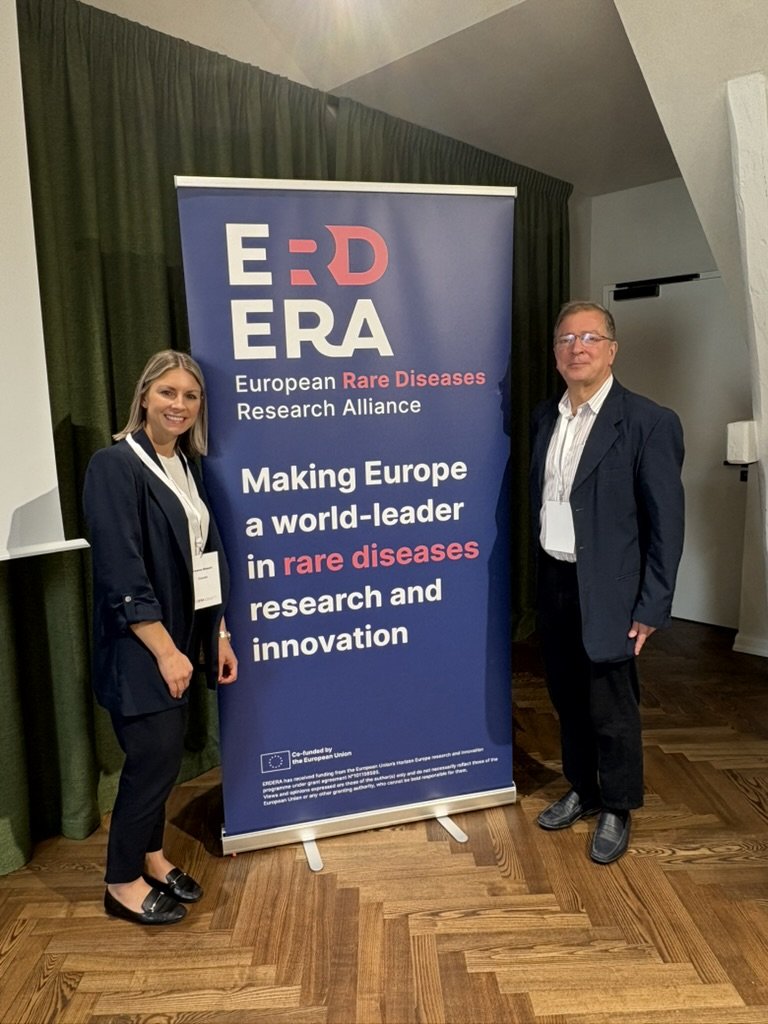RareKids-CAN Participates in the ERDERA National Mirror Group International Workshop
Dr. Thierry Lacaze, Nominated Principal Investigator, and Breanne Stewart, Network Director, represented RareKids-CAN at the in-person ERDERA workshop held in Riga, Latvia on June 2–3, 2025.
The event, titled "How to Maximise the Power of National Plans for Rare Diseases, and Strengthen Their Capacity to Foster Rare Disease Research," brought together representatives from across Europe and internationally to examine the crucial role of national rare disease strategies in supporting research, governance, and sustainable action.
RareKids-CAN proudly co-leads the Canadian National Mirror Group of ERDERA (the European Rare Disease Research Alliance with the Canadian Rare Disease Network (CRDN), and our attendance reflects Canada’s continued commitment to global collaboration in rare disease research and policy development.
Breanne Stewart, Network Director (L), and Dr. Thierry Lacaze, Nominated Principal Investigator (R), at the 2025 ERDERA Workshop in Latvia.
A yellow Labrador tops the 'RIGA' sign—part of a city-wide art installation in front of the House of the Blackheads in Riga, Latvia.
The workshop aimed to:
Reinvigorate international focus on national rare disease plans in alignment with Rare2030 recommendations;
Explore the current status and trends of national plans across ERDERA member countries;
Facilitate the exchange of strategies that strengthen research foundations, enhance governance, and improve funding approaches;
Examine the potential of National Mirror Groups in shaping and renewing national plans.
Dr. Lacaze and Breanne contributed Canadian perspectives to these important discussions, reinforcing the value of international partnerships in advancing access to care and treatments for children, adolescents, and young adults with rare diseases.
Stay tuned for more updates as RareKids-CAN continues to advocate for a robust and unified strategy for rare disease research across Canada and beyond.


